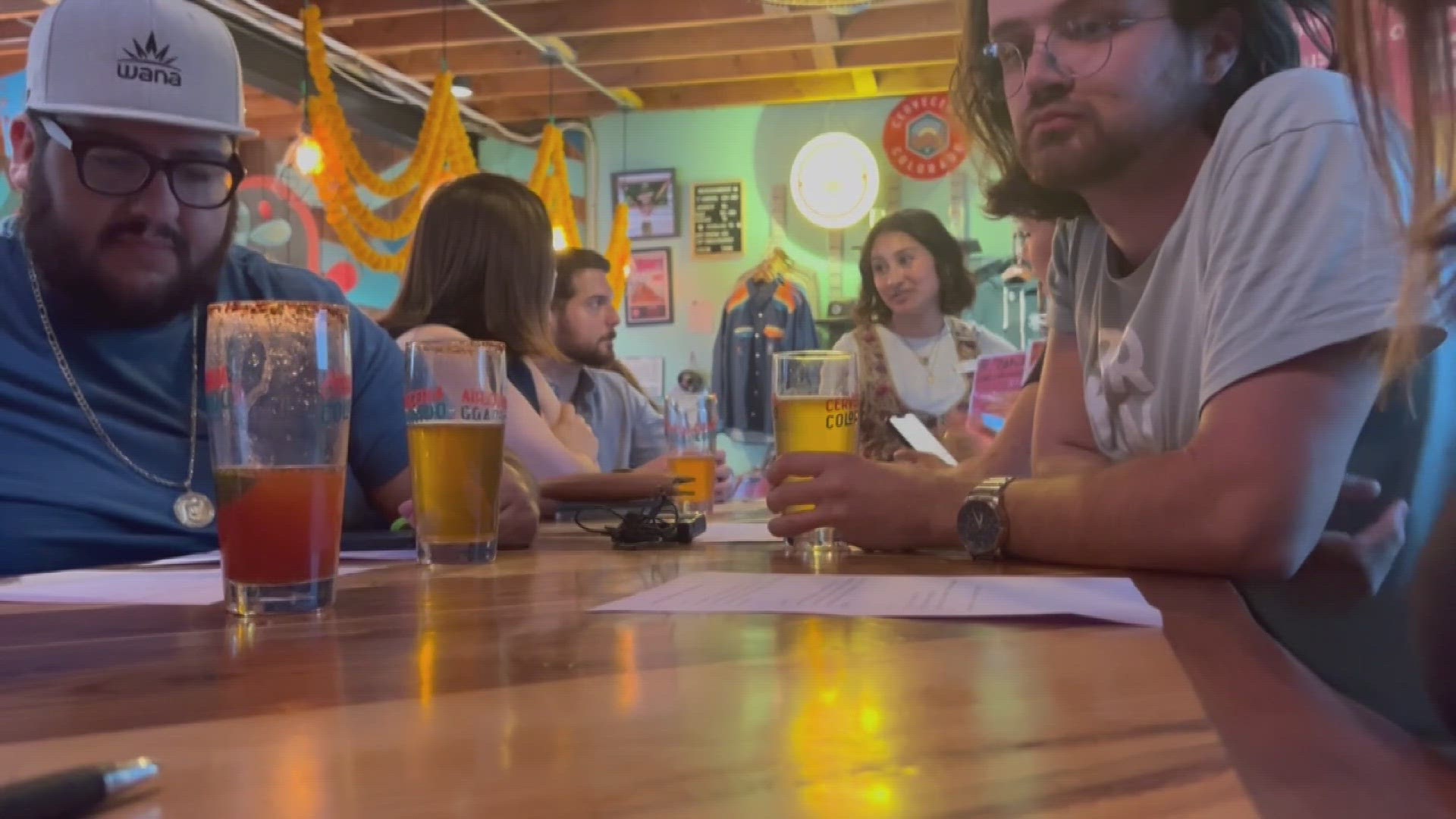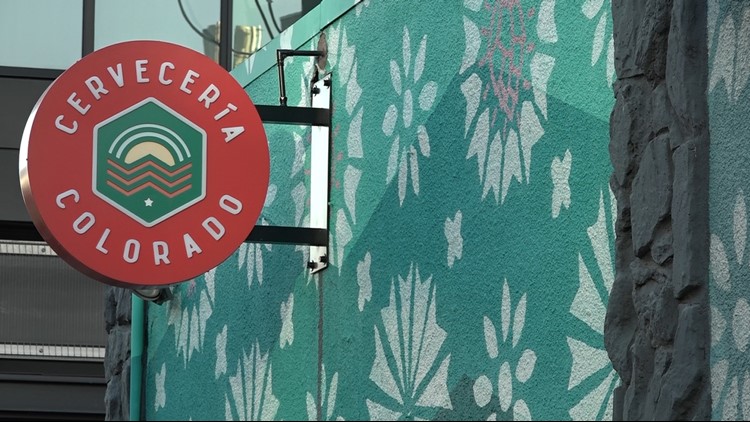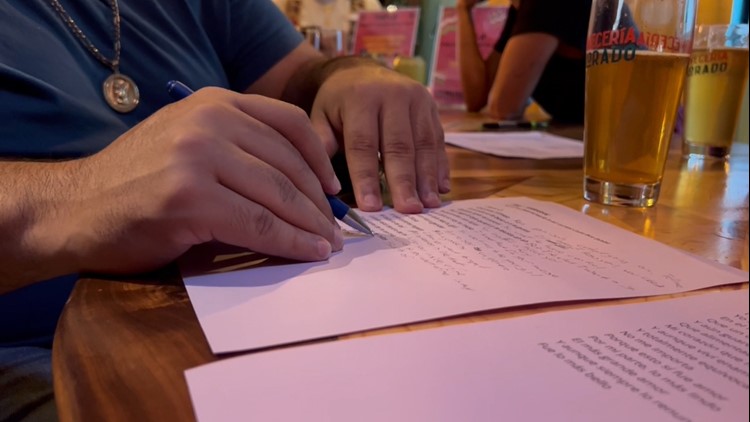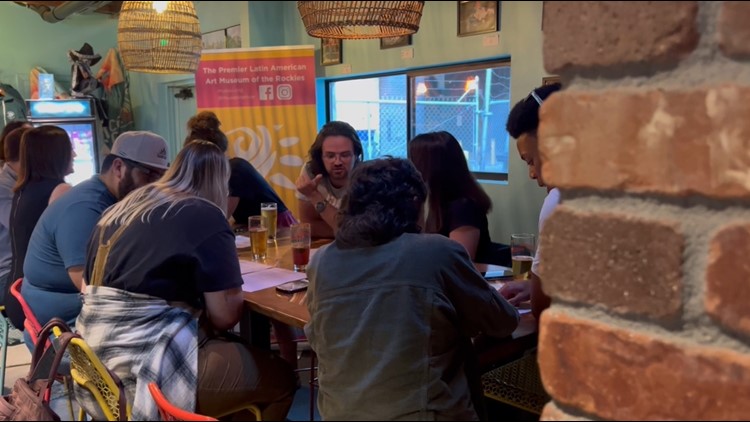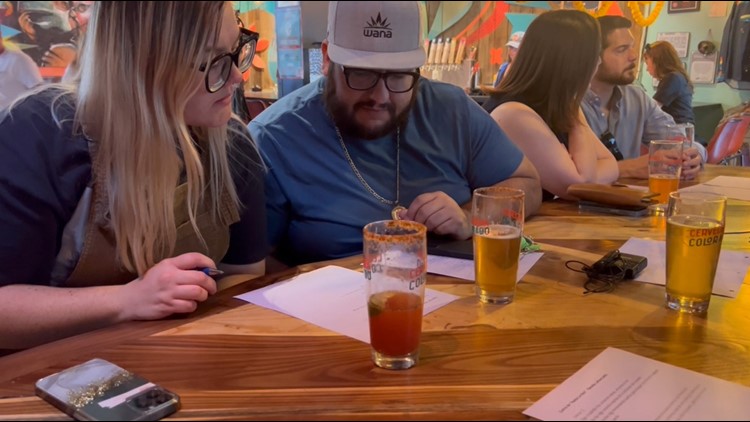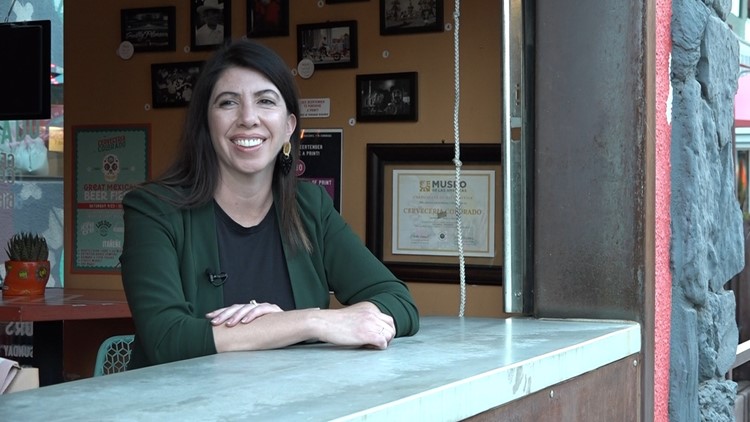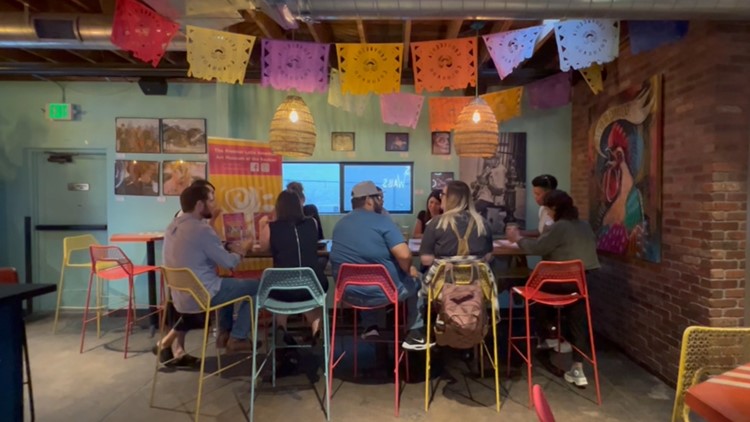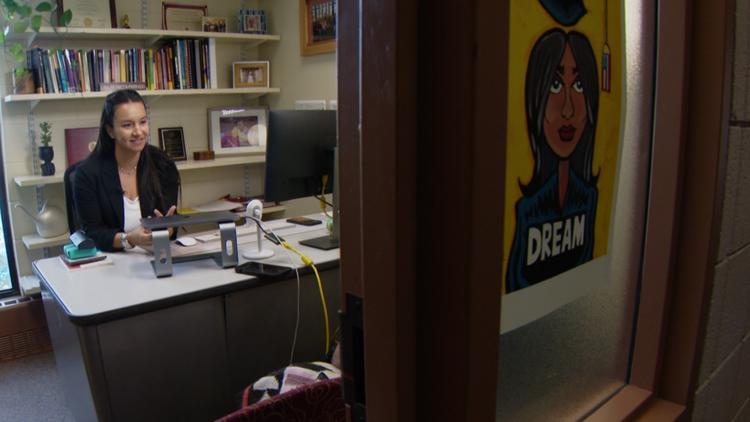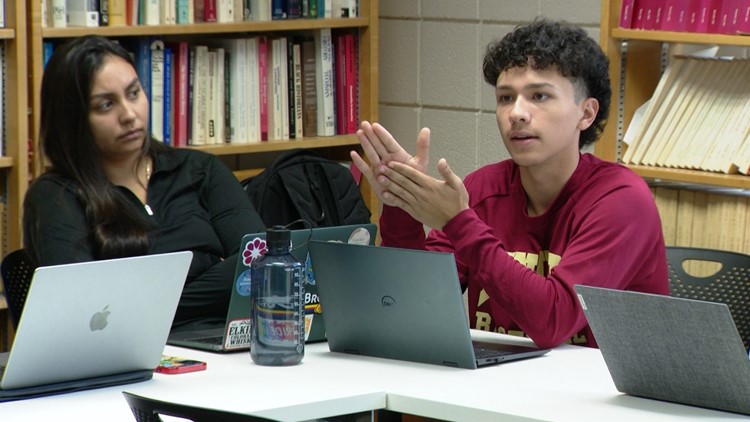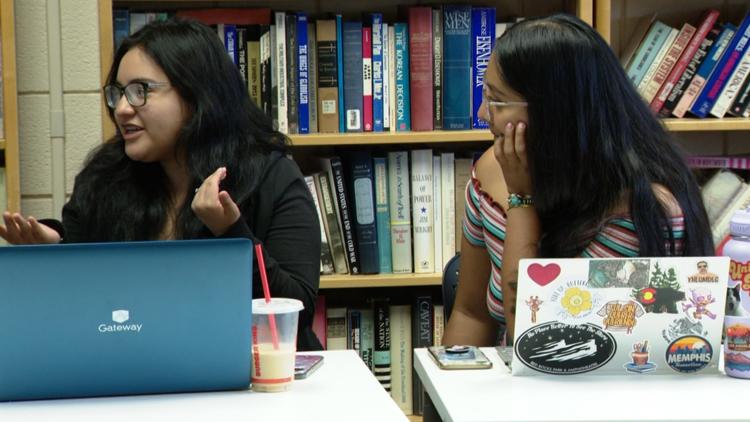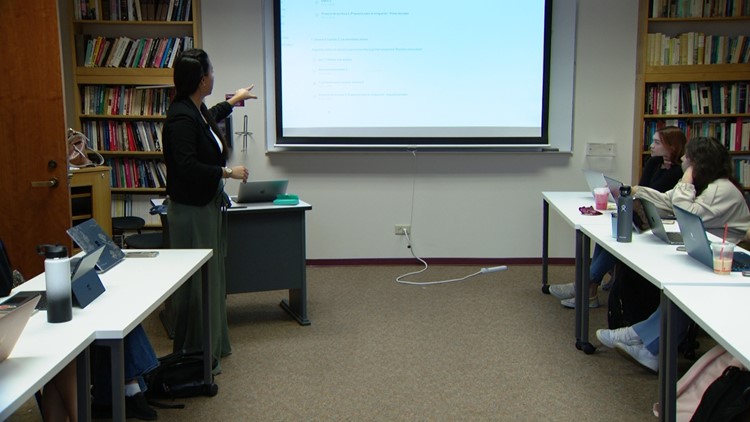DENVER — In a lively brewery downtown, a group of people who are proud of their heritage but don’t speak Spanish are reclaiming the language and pushing back against the stigma of being a “No Sabo Kid.”
The phrase “No Sabo Kid'' has increasingly trended since 2021, according to Google. “No Sabo” is actually an incorrect way to say in Spanish, “I don’t know.”
People use the term online to self-identify as non-Spanish speakers or to mock Hispanics and Latinos who don’t speak the language.
“I don’t feel less Latina, I feel like a different Latina,” said Camila Lara, who attends the Habla Spanish conversation club hosted by Museo de Las Americas at Cervecería.
HABLA Spanish Club at Cerveceria Colorado
Lara grew up in Denver and has family roots in southern Colorado, where people in the 19th and 20th centuries were often punished as children when they spoke their native Spanish. Lara didn’t grow up speaking the language.
Lara took Spanish in school, but never felt comfortable using the language because it wasn’t “perfect.”
“The Spanish language has been really demonized and weaponized I think a lot over history, and that causes families not to necessarily embrace their Spanish language and culture in a lot of ways,” Lara said.
A recent survey by Pew Research found 54% of Hispanics who don’t speak Spanish have reported feeling shame, sometimes directed at them by other Hispanics and Latinos.
“There’s a lot of time in our community where shame is implemented from each other or other systems. I think there’s assimilation that plays into the game,” said Julietta Dasilva, who organizes the HABLA club.
Dasilva is quite familiar with the “No Sabo Kid” term and said the club is a “shame-free” place where people like Lara can learn Spanish without judgment and ridicule.
“Because speaking another language is a vulnerable thing to do. If I could create a relaxing environment, you’re going to show up and you’re going to try, which is the most important part in learning a language,” Dasilva said.
Dr. Lina Reznicek-Parrado
At the University of Denver, Dr. Lina Reznicek-Parrado pushes back against the “No Sabo Kid” term as she oversees the college’s Spanish Program for Heritage Speakers.
“You know ‘Si sabo’ is the new ‘No Sabo,'’’ Reznicek-Parrado said with a laugh during an interview just before one of her morning classes.
She instructs with a mix of Spanish and English to students, most of whom are Latino and Hispanic and who grew up around Spanish. Some have lacked confidence with the language.
“We call it linguistic insecurity,” Reznicek-Parrado said. “I would say for 99% of my students, that’s a very common experience.”
Dasilva said the best way for people to learn Spanish is to find something they love like a book or movie that’s also in Spanish and consume the media with captions.
“So if you like Harry Potter, watch Harry Potter in Spanish,” Dasilva said.
“I don’t think that knowing the Spanish language is like the marker of identity for Latinos and Hispanic people," Dasilva said.
> If you have any information about this story or would like to send a news tip, you can contact jeremy@9news.com.
SUGGESTED VIDEOS: Hispanic Heritage

